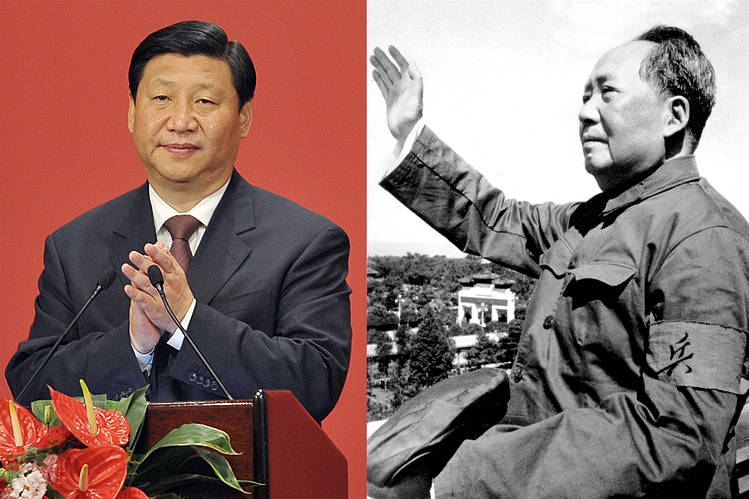When the Great Proletarian Cultural Revolution began in China in 1966, Party newspapers portrayed it as an epochal struggle that would breathe new life into the Chinese socialist cause. The claims were that this great revolution would illuminate the Chinese country with its radiant rays. In reality, the revolution only served to cripple the Chinese economy, push millions of innocent Chinese into a life of poverty, hunger and misery for over a decade, and cause such disruptions in the social fabric that Chinese society still remembers has not fully recovered. This revolution was known to be a creation of the great Mao Zedong, whose role and methods in China’s growth history are still disputed. millions were killed
The 20thThe recently concluded party congress in China concluded with the re-election of Chinese Premier Xi Jinping as party general secretary and head of state. Having consolidated unprecedented powers, the global media is rife with speculation about how Xi Jinping’s next five years will unfold. It is predicted that tougher politics on the economy, foreign relations, human rights and public dissent will take place over the next few years. Xi’s comfortable appointment of his close allies to the Politburo Standing Committee foreshadows a future in which there would be no one in the Chinese political elite to prevent him from doing as he pleases, no matter how that affects the country and could affect the world at large.th National Congress and the 9 th National Congress, which celebrated Mao as the “red sun” that was perhaps expected to illuminate the Chinese land with its radiant rays. Many scholars predict a throwback to the Maoist era.
In his speech at the congress, Xi told the world that his “top priority” this term is development, although the rest of his speech suggests otherwise. If one listens closely to his speech, “security” has taken a clear precedence over “economy”. The move doesn’t come as a complete surprise as it’s been underway for a number of years. The emphasis on security has particularly accelerated under Xi’s rule as he seeks to maintain his political relevance amid slowing economic growth and rising geopolitical tensions with the West. Add to this the recent surge in anti-establishment internal protests by Chinese citizens over a variety of issues, including the draconian lockdown-led zero-COVID strategy, the purge of his critics, economic troubles and the declining real estate sector. Xi intends to counter all of these unfavorable oppositions, hence his emphasis on national security. “The era of growth at any price is basically behind us,” he confirmed this change.
This appears to be a clear break with Deng Xiaoping’s approach of making economic growth a top priority. The main source of legitimacy for the communist party has been the economic growth it has been able to consistently deliver over the past several decades. The focus on the economy, or Deng’s “reform and opening-up” campaign, was at its peak in 1987, until it was muted during the Tiananmen Square protests, which returned the focus to security.
Under Xi’s rule, there could also be a significant shift away from the market economy that Deng aspires towards a state-run economy. An example of this is China’s ruthless pursuit of independence in core technologies. Efforts are expected to intensify further as the US prepares to categorically restrict sales of semiconductors and chip-making equipment to Chinese buyers. Targeted investment in research and development of core technologies will most likely come through government support, implying more government involvement in these sectors. The dependency China has created for the world on itself will allow Xi to dominate the global and Chinese economy like never before.
In his speech, Xi warned of the “dangerous storms” the country is facing and urged cadres to show “fighting spirit” in the fight against corruption and foreign interference. A similar increase in the use of the term “struggle” was observed in his speech, and analysis shows that it has been used longest since the days of Mao’s Cultural Revolution. Mao’s time witnessed increased aggression against other countries, leading to China’s border issues with the Soviet Union, India, and its intervention in the Korean War. It is also speculated that just like in Mao’s time, Xi is plotting China’s annexation of Tibet to implement his long-term plan of taking over Taiwan. With this in mind, perhaps the world needs to be more cautious about Xi’s actions. Countries need to think twice before engaging with China on any front, but especially on the economic front. The warning signs have been showing for a long time, as illustrated by the debt trap many countries find themselves in. This is one of the many ways China is trying to dominate the world. There is therefore a need to form a united front against an emboldened Xi, or we could witness a world worse than the one Mao created.

